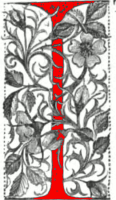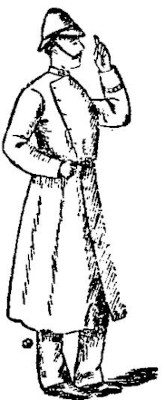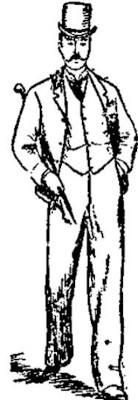This article has been transcribed from a copy of the Cardiff Times in the online collection of scanned Welsh newspapers 1804-1919 in the National Library of Wales, with grateful recognition of the free access accorded to all readers. Paragraph breaks have been introduced for easier reading.
The three old maids of Lee: see 'A bird in Hand' by Frederick Weatherly (1848-1929). —— David Skilton

t has long been a broadly-accepted adage that procrastination is the thief of time. Now as it is an equally acknowledged fact that time is money, it would be an interesting mathematical problem to try and discover the exact quantity of tempus lucre, appropriated by the felonious slow-coaches of the world.
lt must surely have been one of these who is reported to have lived up to the motto, 'Never do to-day what you can put off until to-morrow.'
There are many people in this world who, if they do not actually take this motto as a guide, so regulate, or rather mis-regulate, their lives, that they are always putting things off. There is a story told of a man who was so invariably late in his comings and goings that his friends opined he would not be in time for his own funeral.

Procrastinated with her rent.
To take the reverse side and the brighter one, it has long been a standing joke among the clergy that brides are never punctual. But there must be some method in their madness. They know that they intend to make their husbands wait for them after marriage, and they desire to commence as they intend to go on. This is at least honest, and honesty is a quality of some merit still, in spite of the remark of the nefarious party who said, 'I have no doubt that honesty is the best, policy, but thank goodness I have been able to do without it up to now,' I have often pondered over the fact that women are invariably unpunctual — there are of course exceptions to the rule – and have come to the conclusion that it is constitutional. They can't help it. I do not think it is always pure procrastination with them. It is either laziness or dawdling, the latter generally predominating when the operation of dressing has to be performed. I have known a woman keep a man waiting deliberately while she calmly sat in her dressing-room and read a novel. This could hardly be called procrastination. It was what our American cousins would call 'pure cussedness.'

Procrastinating police.
The main reason for procrastination is, I fancy, that it is so easy to put things off. This is almost an inherent part of human nature, and even children are sad transgressors in the matter of procrastination, for whether it be a question of home lessons or a visit to the dentist, they are always possessed of an ardent desire to put it off. In the latter cases even children of a larger growth are frequently troubled with the same hesitancy. As procrastination exists in the early years of life, so does it crop up in the early hours of the morning, when, to use a vulgarism, 'the bed pulls.' On such occasions there is a delightful sense of happiness experienced by the man who knows it is not an absolute necessity that he shall rise at a given hour, and that he can procrastinate in the matter of rising with no fatal results to himself or others. Procrastination is a fault which grows on those who let it get hold of them. The youth who, holding a position as a clerk in some mercantile house, turns up a few minutes late in the morning will, if he does not check his procrastinating habits, find that he will get later and later until he will at last receive a polite intimation from his employer that his services are no longer required. It is all very well for these boys to imitate the hero of the story which tells of a commercial youth with a weakness for turning up late in the morning, who on being reprimanded for his fault said 'Yes, I know I come late in the morning, but then I go away very early in the afternoon' – a facetious form of argument which failed to impress the interested grumbler as the aforesaid youth should note.

Procrastination – result: three old maids.
The now notorious three old maids of Le[e] who procrastinated until they were compelled to end their lives in single solitude, stand out as a warning to their sex as to the evil of procrastination in the matter of selecting a partner for life. This procrastination is generally the outcome of a fastidious personal conceit, and eventually resolves itself into a feeling that no one is good enough to share the affection of the lady who is the victim of it.
Once let a girl get this idea into her mind and she is pretty safe to be on the shelf when her less conceited sisters who do not procrastinate, but catch on when they get the opportunity, are married settled.

Late for his work young man.
There are some men who invariably procrastinate in the matter of paying their bills, not, in many cases from want of the wherewithal to pay, but purely and simply from force of habit. They put it off much in the same way that a man puts off being shaved, or delays for a short time when he knows that his personal appearance would be improved if he had his hair cut. In some cases there may be reasonable grounds for procrastinating – when there are bills to pay. It has, for instance, Iong been considered the correct thing to procrastinate in reference to those obnoxious necessities, rates and taxes. No man ever feels a sense of satisfaction when he is paying his rates or taxes. Therefore he procrastinates and does not pay them until he has an official intimation that the machinery of the law will be put into operation if he does [not] pay up.
While the peeler procrastinates the burglar burgles in security; and when the doctor follows the example of the peeler there is every likelihood of an increase in the death rate. Procrastination is fatal all round, and wars have been caused, battles lost, and countries ruined by it ere this and those who desire to get on in life will do well to avoid it. 'All things come to him who waits,' may [be] perhaps be true, but nothing of importance ever comes to the man or woman who habitually procrastinates.
Last modified 12 April 2022